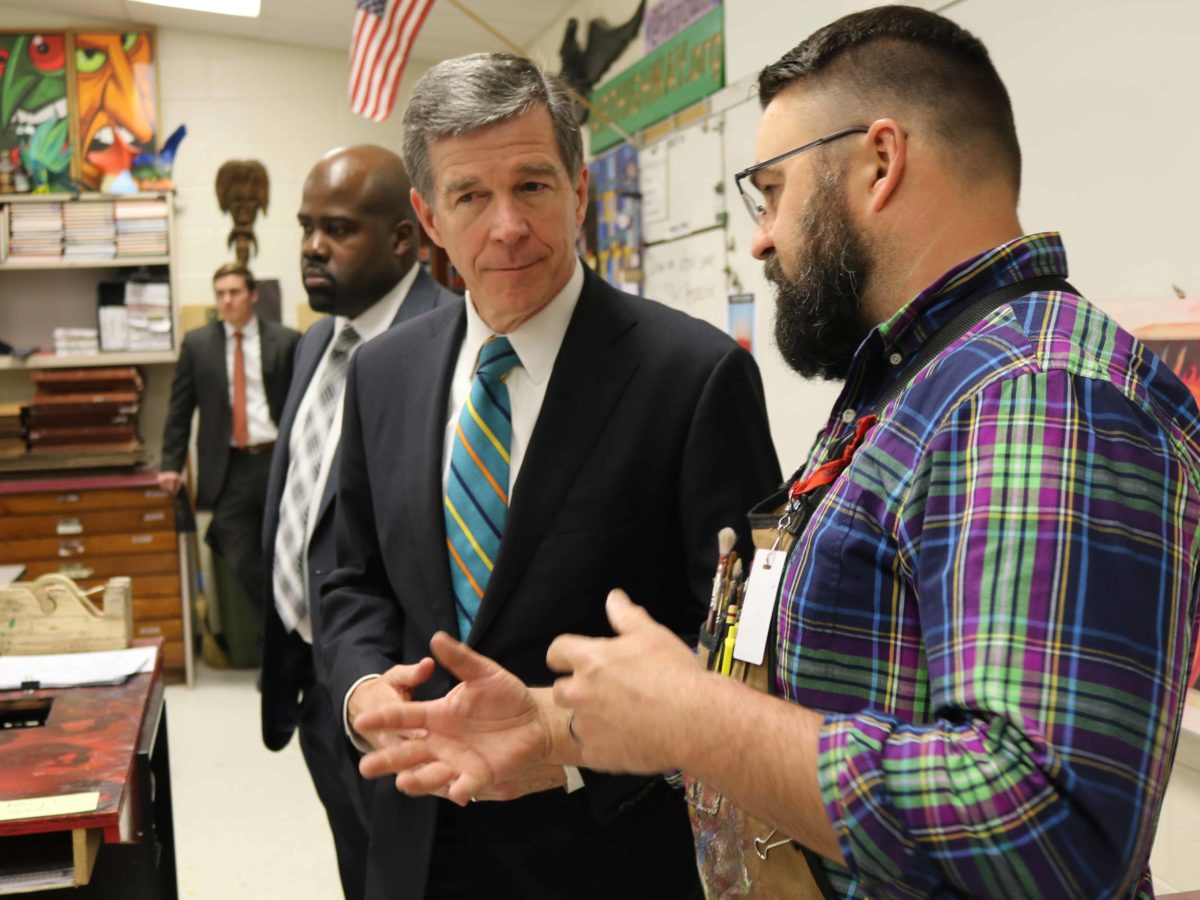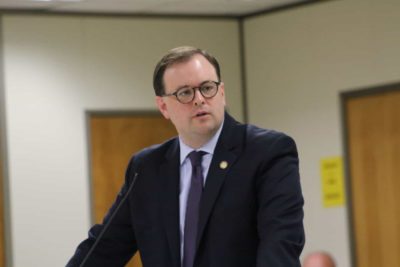

For many Americans, politics often seem a clash of spin and sound bites, of tweets and TV spots, of obfuscation more than clarity. So it is worth noting when an elected official defines a major policy issue for his constituents in direct and unadorned language.
Gov. Roy Cooper did just that a few days ago in a talk with officials of the Charlotte Chamber of Commerce. He defined a critical choice embedded in North Carolina’s ongoing debate over public education: More tax cuts or more revenue devoted to schools?
“When I’m recruiting companies to come to North Carolina, their first question isn’t about our corporate tax rate,” said the Democratic governor. “They always ask: Do you have the education system to provide workers skilled enough to do the jobs I’m going to bring? Education powers our economy.”
Cooper briefly outlined his own education agenda: a pay raise for teachers, eliminating the pre-K waitlist, and community college tuition assistance for high school graduates who have exhausted other financial aid. He called on business owners to oppose tax-cut legislation pending in the General Assembly.
Speaking with reporters in Charlotte, Cooper said, “We’re not going to be able to do corporate tax cuts and tax cuts for the wealthiest among us and do what we need to do investing in education and middle-class tax cuts. It’s pretty much an either-or choice, and I want the business community to let the legislature know how critical it is to invest in (education), how important that is to job growth, the fact that it is more important right now than additional corporate tax cuts.”
In an article this week in Forbes, Republican House Speaker Tim Moore offered his rationale for continuing the series of individual and corporate income tax cuts over the past five years. In year-by-year reductions, the legislature has dropped the corporate rate from 6.9 percent to 3 percent. On the individual income tax, the legislature has substantially increased the standard deduction and adopted a flat rate of 5.49 percent.
A married taxpayer with a $50,000 annual income, said Moore, would have paid $1,968 in state income tax in 2008, but now would pay $1,587 — a decline of $381. The speaker did not offer a calculation of the drop in taxes owed by a taxpayer earning more than $100,000, or the tax savings for a small business.
“While our opponents wage class warfare to keep taxes high and grow the state government,” he said, “Republicans have grown North Carolina’s economy by lowering taxes for every family.”
At issue in the current legislature is not rolling back tax cuts enacted since 2011. Cooper has not called for a roll back, carefully avoiding positioning himself as an advocate for a tax increase. And he has proposed reinstating a child-care tax credit that would benefit middle-class families.
At issue is whether North Carolina should have another round of tax cuts. The General Assembly’s Fiscal Research Division has estimated that the Senate-passed tax bill would cost $323 million in the 2017-18 fiscal year, rising to $839 million in 2021-22.
On the surface, the differences between Cooper and Moore may be seen as yet another Democratic vs. Republican argument. Yes, a two-party state produces differences over politics and leadership. But beyond the partisanship is a critical policy debate: Moore represents the prevailing Republican judgment that tax cuts “have grown North Carolina’s economy.” Cooper represents the long-held consensus of Democrats (as well as some business-Republicans) that “education powers our economy.”
The factors that give a state comparative advantages are varied and complex. As Cooper suggested in Charlotte, business leaders have a vital role to play in defining for lawmakers the infrastructure that sustains a strong, growing North Carolina.


